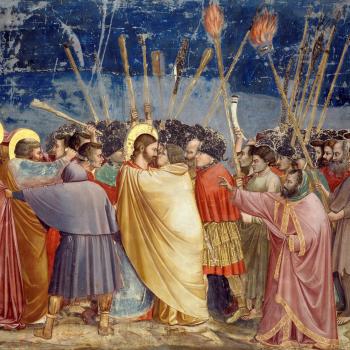On Reformation Day, it is customary, in Protestant America, for Catholics to pause and beat their breast about how the Church had it coming and the Reformation bore so much wonderful fruit. (Usually, the latter claim is used to justify the former). Now it’s true that the Reformation bore good fruit. So, for that matter, did the betrayal of Judas Iscariot, since God is in the habit of bringing good out of evil. Still and all, it might be good now and then for Protestantism to consider the possibility that the evils wrought by the Reformation were, in themselves, almost unalloyed evils for which we are still paying today as the centrifugal forces unleashed by the catastrophe of the Reformation continue to eat like a cancer at the gospel. So without further ado, let me cede the floor to the Prophet Chesterton, who offers a Minority View on the sheer wonderfulness of the Reformation as it is commonly bruited in the agitprop of English-speaking culture:
I am firmly convinced that the Reformation of the sixteenth century was as near as any mortal thing can come to unmixed evil. Even the parts of it that might appear plausible and enlightened from a purely secular standpoint have turned out rotten and reactionary, also from a purely secular standpoint. By substituting the Bible for the sacrament, it created a pedantic caste of those who could read, superstitiously identified with those who could think. By destroying the monks, it took social work from the poor philanthropists who chose to deny themselves, and gave it to the rich philanthropists who chose to assert themselves. By preaching individualism while preserving inequality, it produced modern capitalism. It destroyed the only league of nations that ever had a chance. It produced the worst wars of nations that ever existed. It produced the most efficient form of Protestantism, which is Prussia. And it is producing the worst part of paganism, which is slavery. –G.K. Chesterton
Just a little curmudgeonliness on this ill-starred day when everything Chesterton said above is even truer of our now post-Protestant civilization. Yes, I get that Protestants today are not in the situation of the Reformers and not guilty of their crimes, rebellion against Christ, lies, and manifold evils. I get that Protestants today are typically noble, good, and holy people. But it is worth noting that those crimes, lies, and manifold evils of the Reformers did happen and still poison the world. We can be grateful that God brought good out of the betrayal of Judas without pretending that Judas acted like a saint.











